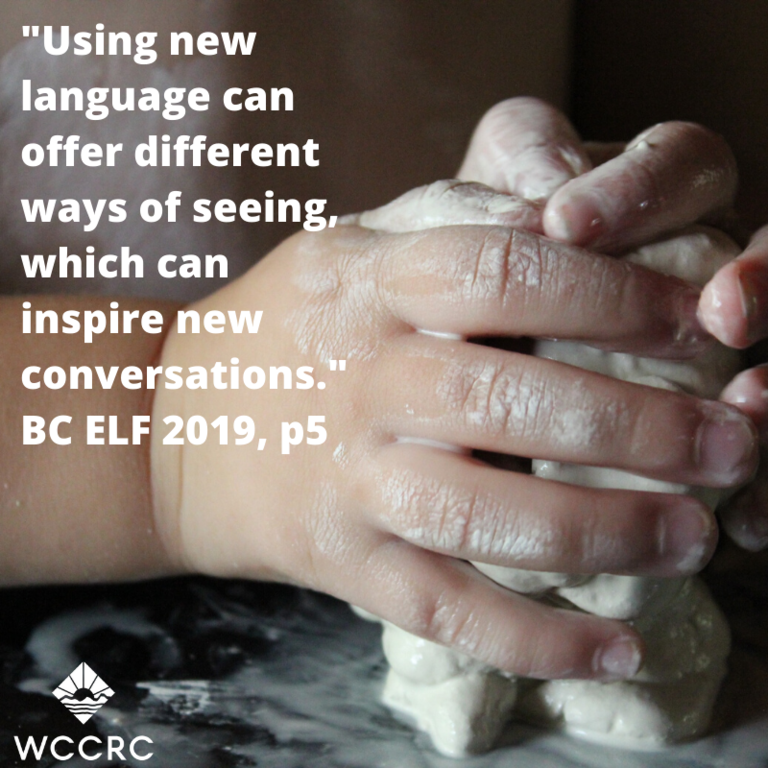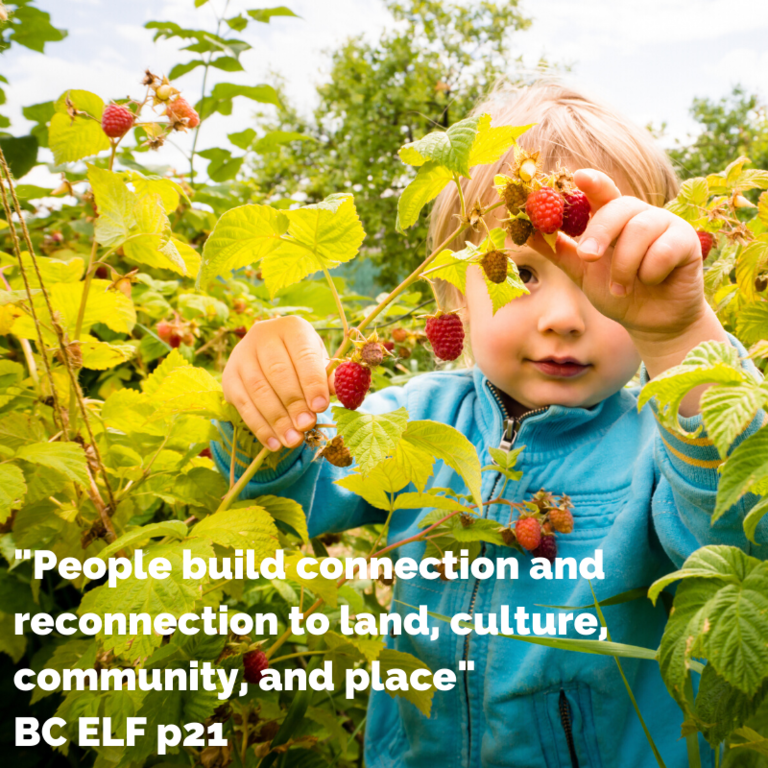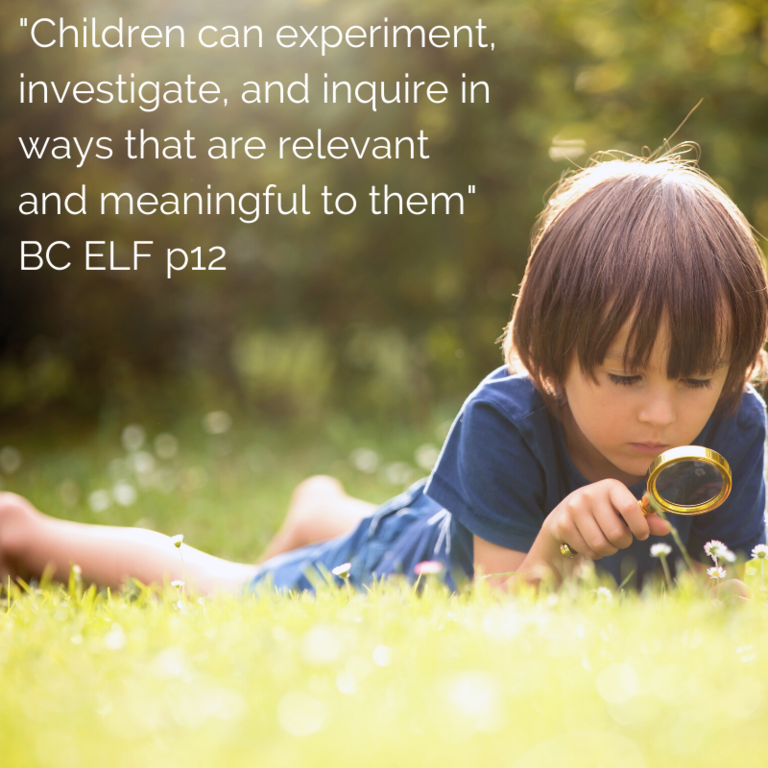Supporting a New Culture of Educators using the revised BC Early Learning Framework (2019)
By Ana Valle Rivera
What is in a culture? In my opinion, language is at the heart of a culture and Early Childhood Education is a culture of its own. The revised BC Early Learning Framework (2019) is rich in theories, and new language that can seem intimidating to many Educators.
One of the major revisions of the ELF (2019) is the idea that “using new language can offer different ways of seeing, which can inspire new conversations” (p. 5). Engaging in new conversations may create discomfort with educators who have taken years and decades to perfect what they believe is the perfect practice and program.

The concepts and language put forth by the ELF (2019) are not intended to scare or offend anyone. The purpose of new language is to inspire educators to consider “different ways of learning, different perspectives and engage with the complexities of practice" (p.12). By engaging in a complexity of practice we can create a new culture of professional educators and pedagogists that support the visions and principles of the ELF (2019).
If we want to value the rights of children through Inquiry-based learning and play it is essential that we start using the new language from the ELF (2019) in our daily pedagogical practices. By using “inquiry” and “pathways” to describe learning we move away from predicted learning outcomes which can limit possibilities for new pathways.
A colleague of mine recently said something that will stay with me forever. If we truly hold in our heart the image of a child that is capable, competent and full of potential then adopting the ELF (2019) is about “recognizing that children have the right to intellectually engaged educators” (Kocher, 2019).
As you navigate through the ELF (2019) please remember that learning a new language takes time. Anyone that has tried learning a new language knows that it takes a lot of practice and patience. A new language can not and should not be forced.

I truly believe that by planting gentle seeds and encouraging them to grow we can create impactful change in the Early Years field. Each educator is on a different learning pathway, remember to be kind to yourself and to others on this journey.
Author Bio: Raised in a large and lively family in East Vancouver BC, Ana knew her life's purpose was working with children. She began working in the childcare field in 2007. Since earning a Diploma in ECE, Special Needs and IT Education (2010), she has worked with children of all ages with different developmental needs in various childcare settings. Ana is currently completing a degree in Child and Youth Care with Specializations in Early Years and Indigenous Studies. Ana is a parent and a children's book author. Ana works as an entrepreneur and is the owner and founder of Early Years Workshops and Training. Ana has made it her mission to share her passion and knowledge of Early Years through creating and facilitating her own workshops and writings.
Try a Living Inquiry
Everything Changes (Let’s Play! Activities for Families, p. 45-46)
What: This is an experience that will help your child learn about difference and change.
Step 1. Create the Environment
Talk to your child about changes that happen everyday, such as the weather, the leaves that have fallen, or that their fingernails or toenails are longer than they were last week
Step 2. Sharing Experiences
Ask your child to look around and find one thing that has stayed the same, and something else that has changed. Maybe the sunny sky of the morning is still sunny. Maybe a bird you saw outside has flown away. Ask your child, “What do you see?”
Why: Through this experience, children will learn to
-
Express a positive regard and respect for self, others and property
-
Understand that all persons have value
-
Understand, accept, and welcome changes and differences in themselves and the world around them
How:
- Explore with your child about some of the things that stay the same, and some things that are different or change. Point them out.
- Explore with your child what these changes and differences might look like on paper, either through words, through drawings or through another creative method.
- Explore with your child how these changes and differences make them feel. You can discuss the changes, write them down, draw them, or express them through some other way such as acting them out.
- Read a story with your child about weather, changes or other ideas that connect with the activity.

This list of library resources available at the WELL can support this living inquiry.
